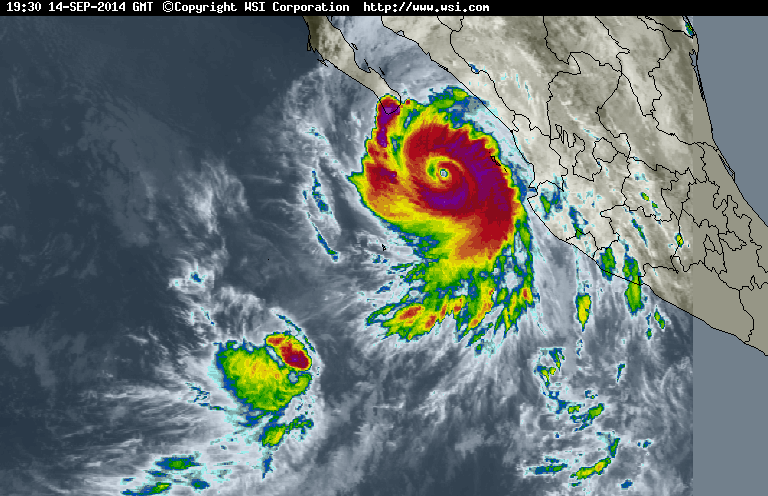
Pacific hurricanes in 2014 have been described by
forecasters as being “particularly
ferocious — about 145% more intense than normal.”
Fourteen hurricanes and six tropical storms have formed in
the region so far this season. It's the most intense eastern Pacific season since
2006, Colorado State University meteorologist Phil Klotzbach said.
One of the most powerful eastern Pacific hurricanes on record, Odile,
blasted Los Cabos in September with 125-mph winds, killing 15
people in Mexico and the U.S. We covered the devastation and subsequent recovery after Odile here on iTravel-Cabo.com extensively: the scale of the damage being completely overwhelmed by the determination of the recovery and rebuilding. Los Cabos and the Mexican Government definitely set a benchmark for how to get normality back after a major disaster like Odile.
Odile hit just after Hurricane Norbert passed close enough
by to cause flash flooding in the region.
"The eastern Pacific hurricanes that moved over the
Baja California peninsula into Mexico helped swamp the desert U.S. Southwest,
where they received a lot of rainfall," said meteorologist Ryan Maue of
the private firm WeatherBell.
At the same time, the Atlantic was fairly quiet, with about
67% of its normal activity, Maue said. Just eight tropical storms and
hurricanes formed there, with only one — Hurricane Arthur — making landfall in
the U.S.
These swings of quiet Atlantic and active Pacific is typical
of the El Niño-like pattern we're in, Maue concluded.
The National Hurricane Center did a good job predicting an
above-average Pacific season with 14 to 20 hurricanes and tropical storms, but
it forecast just seven to 11 of those would be hurricanes, falling short of the
number that actually formed.
While the six-month season doesn't officially end until Nov.
30, it's likely most of the danger from a major storm has passed with Hurricane
Vance leaving Los Cabos to recover fully and get back to doing what it does
best: welcome tens of thousands of tourists and delivering the best vacation
experience of their lives.